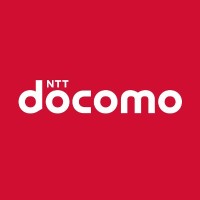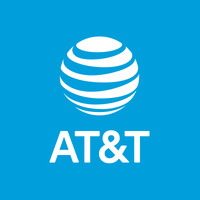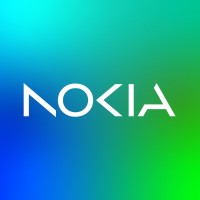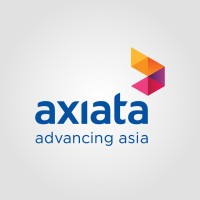
NTT DOCOMO Company Cyber Security Posture
docomo.ne.jpNTT DOCOMO, Japan's largest telecommunications company, provides innovative, convenient and secure mobile services that enable customers to realize smarter lives. The company serves over 73 million customers in Japan via advanced wireless networks, including a nationwide LTE network and one of the world's most progressive LTE-Advanced networks. DOCOMO is a world-leading developer of 5G networks, which it plans to deploy in the 2020s by leveraging network function virtualization (NFV) and other technologies. DOCOMO is also driving innovation in NFC infrastructure and services, emerging IoT solutions and many other mobile-related initiatives. Outside Japan, the company provides technical and operational expertise to mobile operators and other partner companies, and contributes to the global standardization of new mobile technologies. Under its +d (pronounced plus d) initiatives, DOCOMO will create new added value with business partners to enrich people's lives with all-new services and businesses. The history of mobile communications parallels the history of NTT DOCOMO. Established in 1992, DOCOMO launched its first digital cellular phone service the next year and the world's first mobile Internet-services platform in 1999. It helped to establish the W-CDMA standard for mobile communications and then kick off the first 3G service based on this standard in 2001. The company also introduced one of the earliest commercial LTE services in 2010. Over the years DOCOMO has built up one of the globe's largest mobile subscriber bases, accounting for over half of the Japanese market.
NTT DOCOMO Company Details
ntt-docomo
1239 employees
8808
517
Telecommunications
docomo.ne.jp
Scan still pending
NTT_1002976
In-progress
Between 900 and 1000
This score is AI-generated and less favored by cyber insurers, who prefer the TPRM score.
 NTT DOCOMO Global Score
NTT DOCOMO Global Score.png)

NTT DOCOMO Company Scoring based on AI Models
| Model Name | Date | Description | Current Score Difference | Score |
|---|---|---|---|---|
| AVERAGE-Industry | 03-12-2025 | This score represents the average cybersecurity rating of companies already scanned within the same industry. It provides a benchmark to compare an individual company's security posture against its industry peers. | N/A | Between 900 and 1000 |
NTT DOCOMO Company Cyber Security News & History
| Entity | Type | Severity | Impact | Seen | Url ID | Details | View |
|---|---|---|---|---|---|---|---|
| ntt-docomo | Ransomware | 100 | 5 | 09/2023 | NTT02621023 | Link | |
Rankiteo Explanation : Attack threatening the organization’s existenceDescription: The renowned ransomware group Ransomed. vc reported a new victim today in the form of the major Japanese telecommunications company NTT Docomo in response to the newly disclosed Sony data leak. Notably, the statement coincided nearly exactly with the release of additional Sony data leaks that shed some light on the data breach's predecessor. The largest NTT Docomo is being asked to pay $1,015,000 to the bad actors. The bad guys released the stolen data after Sony declined to fulfill the ransom demands. It was discovered that if businesses don't pay, hackers will release the data they've stolen, which could result in regulatory penalties that occasionally exceed the ransom. | |||||||
NTT DOCOMO Company Subsidiaries

NTT DOCOMO, Japan's largest telecommunications company, provides innovative, convenient and secure mobile services that enable customers to realize smarter lives. The company serves over 73 million customers in Japan via advanced wireless networks, including a nationwide LTE network and one of the world's most progressive LTE-Advanced networks. DOCOMO is a world-leading developer of 5G networks, which it plans to deploy in the 2020s by leveraging network function virtualization (NFV) and other technologies. DOCOMO is also driving innovation in NFC infrastructure and services, emerging IoT solutions and many other mobile-related initiatives. Outside Japan, the company provides technical and operational expertise to mobile operators and other partner companies, and contributes to the global standardization of new mobile technologies. Under its +d (pronounced plus d) initiatives, DOCOMO will create new added value with business partners to enrich people's lives with all-new services and businesses. The history of mobile communications parallels the history of NTT DOCOMO. Established in 1992, DOCOMO launched its first digital cellular phone service the next year and the world's first mobile Internet-services platform in 1999. It helped to establish the W-CDMA standard for mobile communications and then kick off the first 3G service based on this standard in 2001. The company also introduced one of the earliest commercial LTE services in 2010. Over the years DOCOMO has built up one of the globe's largest mobile subscriber bases, accounting for over half of the Japanese market.
Access Data Using Our API

Get company history
.png)
NTT DOCOMO Cyber Security News
Data breach at Japanese telecom giant NTT hits 18,000 companies
"NTT Communications Corporation discovered on February 5 that our facilities had been subjected to unauthorized access," reads the announcement.
NTT Docomo Hit by DDoS Attack, Services Disrupted for 11 Hours
The attack resulted in widespread service irregularities affecting customers for nearly 11 hours, from 5:27 a.m. until 4:10 p.m.. Services ...
NTT admits hackers accessed details of almost 18,000 corporate customers in cyberattack
Japanese telecommunications giant NTT Communications has confirmed suffering a cyberattack which saw it lose data on roughly 18,000 client ...
NTT Docomo hit by DDoS attack
The distributed denial-of-service (DDoS) attack caused a website failure and some service disruption for around 12 hours.
Japanese telecom giant NTT suffered a data breach that impacted 18,000 companies
A data breach suffered by the Japanese telecom giant NTT exposed information of nearly 18000 corporate customers.
NTT Docomo sees smart surfaces as key to 6G
NTT Docomo is advancing the idea of metasurface reflectors that dynamically redirect signals to mobile devices as they move. The operator ran ...
DDoS Disrupts Japanese Mobile Giant Docomo
Japan's largest mobile operator has revealed that a DDoS attack on Thursday disrupted some services for nearly 12 hours.
News - NTT Communications warns nearly 18,000 corporate customers of data breach
Japanese telecommunications giant NTT Communications Corporation (NTT) has alerted nearly 18000 corporate clients to a cybersecurity breach ...
Japanese Telecom Giant NTT Suffers Data Breach, Impacting 18,000 Companies
Japanese telecom giant NTT Communications Corporation (NTT) has issued a warning to nearly 18000 corporate customers after a cyberattack ...

NTT DOCOMO Similar Companies

AT&T
We understand that our customers want an easier, less complicated life. We’re using our network, labs, products, services, and people to create a world where everything works together seamlessly, and life is better as a result. How will we continue to drive for this excellence in innovation?

BTCC Call Center
Em breve uma nova página da BTCC Conexão Cliente. Acompanhe as as atualizações por aqui, no Linkedin. Show more Show less

Correo Argentino
La red comercial de Correo Argentino se encuentra conformada por más de 5000 puntos de venta a lo largo de todo el país, siendo con ello la red más extensa en el ámbito nacional. Ademas en la Red de Sucursales una importante variedad de nuevos servicios se pueden encontrar: Pago Fácil, Western

Nokia
At Nokia, we create technology that helps the world act together. As a B2B technology innovation leader, we are pioneering the future where networks meet cloud to realize the full potential of digital in every industry. Through networks that sense, think and act, we work with our customers and pa

Bharti Enterprises
Bharti Enterprises is one of India’s leading business group with diversified interests in telecom, financial services, real estate, hospitality, agri and food. Bharti has been a pioneering force in the Indian telecom sector with many firsts and innovations to its credit. Bharti Airtel, the group's

Axiata
AXIATA GROUP BERHAD 242188-H (199201010685) In pursuit of its vision to be The Next Generation Digital Champion, Axiata is a diversified telecommunications and digital conglomerate operating Digital Telcos, Digital Businesses and Infrastructure businesses across a footprint spanning ASEAN and Sout

Frequently Asked Questions (FAQ) on Cybersecurity Incidents
NTT DOCOMO CyberSecurity History Information
Total Incidents: According to Rankiteo, NTT DOCOMO has faced 1 incidents in the past.
Incident Types: The types of cybersecurity incidents that have occurred include ['Ransomware'].
Total Financial Loss: The total financial loss from these incidents is estimated to be {total_financial_loss}.
Cybersecurity Posture: The company's overall cybersecurity posture is described as NTT DOCOMO, Japan's largest telecommunications company, provides innovative, convenient and secure mobile services that enable customers to realize smarter lives. The company serves over 73 million customers in Japan via advanced wireless networks, including a nationwide LTE network and one of the world's most progressive LTE-Advanced networks. DOCOMO is a world-leading developer of 5G networks, which it plans to deploy in the 2020s by leveraging network function virtualization (NFV) and other technologies. DOCOMO is also driving innovation in NFC infrastructure and services, emerging IoT solutions and many other mobile-related initiatives. Outside Japan, the company provides technical and operational expertise to mobile operators and other partner companies, and contributes to the global standardization of new mobile technologies. Under its +d (pronounced plus d) initiatives, DOCOMO will create new added value with business partners to enrich people's lives with all-new services and businesses. The history of mobile communications parallels the history of NTT DOCOMO. Established in 1992, DOCOMO launched its first digital cellular phone service the next year and the world's first mobile Internet-services platform in 1999. It helped to establish the W-CDMA standard for mobile communications and then kick off the first 3G service based on this standard in 2001. The company also introduced one of the earliest commercial LTE services in 2010. Over the years DOCOMO has built up one of the globe's largest mobile subscriber bases, accounting for over half of the Japanese market..
Detection and Response: The company detects and responds to cybersecurity incidents through {description_of_detection_and_response_process}.
Incident Details
Incident 1: Ransomware Attack
Title: {Incident_Title}
Description: {Brief_description_of_the_incident}
Date Detected: {Detection_Date}
Date Publicly Disclosed: {Disclosure_Date}
Date Resolved: {Resolution_Date}
Type: {Type_of_Attack}
Attack Vector: {Attack_Vector}
Vulnerability Exploited: {Vulnerability}
Threat Actor: {Threat_Actor}
Motivation: {Motivation}
Incident 2: Data Breach
Title: {Incident_Title}
Description: {Brief_description_of_the_incident}
Date Detected: {Detection_Date}
Date Publicly Disclosed: {Disclosure_Date}
Date Resolved: {Resolution_Date}
Type: {Type_of_Attack}
Attack Vector: {Attack_Vector}
Vulnerability Exploited: {Vulnerability}
Threat Actor: {Threat_Actor}
Motivation: {Motivation}
Common Attack Types: As of now, the company has not encountered any reported incidents involving common cyberattacks.
Identification of Attack Vectors: The company identifies the attack vectors used in incidents through {description_of_identification_process}.
Impact of the Incidents
Incident 1: Ransomware Attack
Financial Loss: {Financial_Loss}
Data Compromised: {Data_Compromised}
Systems Affected: {Systems_Affected}
Downtime: {Downtime}
Operational Impact: {Operational_Impact}
Conversion Rate Impact: {Conversion_Rate_Impact}
Revenue Loss: {Revenue_Loss}
Customer Complaints: {Customer_Complaints}
Brand Reputation Impact: {Brand_Reputation_Impact}
Legal Liabilities: {Legal_Liabilities}
Identity Theft Risk: {Identity_Theft_Risk}
Payment Information Risk: {Payment_Information_Risk}
Incident 2: Data Breach
Financial Loss: {Financial_Loss}
Data Compromised: {Data_Compromised}
Systems Affected: {Systems_Affected}
Downtime: {Downtime}
Operational Impact: {Operational_Impact}
Conversion Rate Impact: {Conversion_Rate_Impact}
Revenue Loss: {Revenue_Loss}
Customer Complaints: {Customer_Complaints}
Brand Reputation Impact: {Brand_Reputation_Impact}
Legal Liabilities: {Legal_Liabilities}
Identity Theft Risk: {Identity_Theft_Risk}
Payment Information Risk: {Payment_Information_Risk}
Average Financial Loss: The average financial loss per incident is {average_financial_loss}.
Commonly Compromised Data Types: The types of data most commonly compromised in incidents are {list_of_commonly_compromised_data_types}.
Incident 1: Ransomware Attack
Entity Name: {Entity_Name}
Entity Type: {Entity_Type}
Industry: {Industry}
Location: {Location}
Size: {Size}
Customers Affected: {Customers_Affected}
Incident 2: Data Breach
Entity Name: {Entity_Name}
Entity Type: {Entity_Type}
Industry: {Industry}
Location: {Location}
Size: {Size}
Customers Affected: {Customers_Affected}
Response to the Incidents
Incident 1: Ransomware Attack
Incident Response Plan Activated: {Yes/No}
Third Party Assistance: {Yes/No}
Law Enforcement Notified: {Yes/No}
Containment Measures: {Containment_Measures}
Remediation Measures: {Remediation_Measures}
Recovery Measures: {Recovery_Measures}
Communication Strategy: {Communication_Strategy}
Adaptive Behavioral WAF: {Adaptive_Behavioral_WAF}
On-Demand Scrubbing Services: {On_Demand_Scrubbing_Services}
Network Segmentation: {Network_Segmentation}
Enhanced Monitoring: {Enhanced_Monitoring}
Incident 2: Data Breach
Incident Response Plan Activated: {Yes/No}
Third Party Assistance: {Yes/No}
Law Enforcement Notified: {Yes/No}
Containment Measures: {Containment_Measures}
Remediation Measures: {Remediation_Measures}
Recovery Measures: {Recovery_Measures}
Communication Strategy: {Communication_Strategy}
Adaptive Behavioral WAF: {Adaptive_Behavioral_WAF}
On-Demand Scrubbing Services: {On_Demand_Scrubbing_Services}
Network Segmentation: {Network_Segmentation}
Enhanced Monitoring: {Enhanced_Monitoring}
Incident Response Plan: The company's incident response plan is described as {description_of_incident_response_plan}.
Third-Party Assistance: The company involves third-party assistance in incident response through {description_of_third_party_involvement}.
Data Breach Information
Incident 2: Data Breach
Type of Data Compromised: {Type_of_Data}
Number of Records Exposed: {Number_of_Records}
Sensitivity of Data: {Sensitivity_of_Data}
Data Exfiltration: {Yes/No}
Data Encryption: {Yes/No}
File Types Exposed: {File_Types}
Personally Identifiable Information: {Yes/No}
Prevention of Data Exfiltration: The company takes the following measures to prevent data exfiltration: {description_of_prevention_measures}.
Handling of PII Incidents: The company handles incidents involving personally identifiable information (PII) through {description_of_handling_process}.
Ransomware Information
Incident 1: Ransomware Attack
Ransom Demanded: {Ransom_Amount}
Ransom Paid: {Ransom_Paid}
Ransomware Strain: {Ransomware_Strain}
Data Encryption: {Yes/No}
Data Exfiltration: {Yes/No}
Ransom Payment Policy: The company's policy on paying ransoms in ransomware incidents is described as {description_of_ransom_payment_policy}.
Data Recovery from Ransomware: The company recovers data encrypted by ransomware through {description_of_data_recovery_process}.
Regulatory Compliance
Incident 1: Ransomware Attack
Regulations Violated: {Regulations_Violated}
Fines Imposed: {Fines_Imposed}
Legal Actions: {Legal_Actions}
Regulatory Notifications: {Regulatory_Notifications}
Incident 2: Data Breach
Regulations Violated: {Regulations_Violated}
Fines Imposed: {Fines_Imposed}
Legal Actions: {Legal_Actions}
Regulatory Notifications: {Regulatory_Notifications}
Regulatory Frameworks: The company complies with the following regulatory frameworks regarding cybersecurity: {list_of_regulatory_frameworks}.
Ensuring Regulatory Compliance: The company ensures compliance with regulatory requirements through {description_of_compliance_measures}.
Lessons Learned and Recommendations
Incident 1: Ransomware Attack
Lessons Learned: {Lessons_Learned}
Incident 2: Data Breach
Lessons Learned: {Lessons_Learned}
Incident 1: Ransomware Attack
Recommendations: {Recommendations}
Incident 2: Data Breach
Recommendations: {Recommendations}
Key Lessons Learned: The key lessons learned from past incidents are {list_of_key_lessons_learned}.
Implemented Recommendations: The company has implemented the following recommendations to improve cybersecurity: {list_of_implemented_recommendations}.
References
Additional Resources: Stakeholders can find additional resources on cybersecurity best practices at {list_of_additional_resources}.
Investigation Status
Incident 1: Ransomware Attack
Investigation Status: {Investigation_Status}
Incident 2: Data Breach
Investigation Status: {Investigation_Status}
Communication of Investigation Status: The company communicates the status of incident investigations to stakeholders through {description_of_communication_process}.
Stakeholder and Customer Advisories
Incident 1: Ransomware Attack
Stakeholder Advisories: {Stakeholder_Advisories}
Customer Advisories: {Customer_Advisories}
Incident 2: Data Breach
Stakeholder Advisories: {Stakeholder_Advisories}
Customer Advisories: {Customer_Advisories}
Advisories Provided: The company provides the following advisories to stakeholders and customers following an incident: {description_of_advisories_provided}.
Initial Access Broker
Incident 1: Ransomware Attack
Entry Point: {Entry_Point}
Reconnaissance Period: {Reconnaissance_Period}
Backdoors Established: {Backdoors_Established}
High Value Targets: {High_Value_Targets}
Data Sold on Dark Web: {Yes/No}
Incident 2: Data Breach
Entry Point: {Entry_Point}
Reconnaissance Period: {Reconnaissance_Period}
Backdoors Established: {Backdoors_Established}
High Value Targets: {High_Value_Targets}
Data Sold on Dark Web: {Yes/No}
Monitoring and Mitigation of Initial Access Brokers: The company monitors and mitigates the activities of initial access brokers through {description_of_monitoring_and_mitigation_measures}.
Post-Incident Analysis
Incident 1: Ransomware Attack
Root Causes: {Root_Causes}
Corrective Actions: {Corrective_Actions}
Incident 2: Data Breach
Root Causes: {Root_Causes}
Corrective Actions: {Corrective_Actions}
Post-Incident Analysis Process: The company's process for conducting post-incident analysis is described as {description_of_post_incident_analysis_process}.
Corrective Actions Taken: The company has taken the following corrective actions based on post-incident analysis: {list_of_corrective_actions_taken}.
Additional Questions
General Information
Ransom Payment History: The company has {paid/not_paid} ransoms in the past.
Last Ransom Demanded: The amount of the last ransom demanded was {last_ransom_amount}.
Last Attacking Group: The attacking group in the last incident was {last_attacking_group}.
Incident Details
Most Recent Incident Detected: The most recent incident detected was on {most_recent_incident_detected_date}.
Most Recent Incident Publicly Disclosed: The most recent incident publicly disclosed was on {most_recent_incident_publicly_disclosed_date}.
Most Recent Incident Resolved: The most recent incident resolved was on {most_recent_incident_resolved_date}.
Impact of the Incidents
Highest Financial Loss: The highest financial loss from an incident was {highest_financial_loss}.
Most Significant Data Compromised: The most significant data compromised in an incident was {most_significant_data_compromised}.
Most Significant System Affected: The most significant system affected in an incident was {most_significant_system_affected}.
Response to the Incidents
Third-Party Assistance in Most Recent Incident: The third-party assistance involved in the most recent incident was {third_party_assistance_in_most_recent_incident}.
Containment Measures in Most Recent Incident: The containment measures taken in the most recent incident were {containment_measures_in_most_recent_incident}.
Data Breach Information
Most Sensitive Data Compromised: The most sensitive data compromised in a breach was {most_sensitive_data_compromised}.
Number of Records Exposed: The number of records exposed in the most significant breach was {number_of_records_exposed}.
Ransomware Information
Highest Ransom Demanded: The highest ransom demanded in a ransomware incident was {highest_ransom_demanded}.
Highest Ransom Paid: The highest ransom paid in a ransomware incident was {highest_ransom_paid}.
Regulatory Compliance
Highest Fine Imposed: The highest fine imposed for a regulatory violation was {highest_fine_imposed}.
Most Significant Legal Action: The most significant legal action taken for a regulatory violation was {most_significant_legal_action}.
Lessons Learned and Recommendations
Most Significant Lesson Learned: The most significant lesson learned from past incidents was {most_significant_lesson_learned}.
Most Significant Recommendation Implemented: The most significant recommendation implemented to improve cybersecurity was {most_significant_recommendation_implemented}.
References
Most Recent Source: The most recent source of information about an incident is {most_recent_source}.
Most Recent URL for Additional Resources: The most recent URL for additional resources on cybersecurity best practices is {most_recent_url}.
Investigation Status
Current Status of Most Recent Investigation: The current status of the most recent investigation is {current_status_of_most_recent_investigation}.
Stakeholder and Customer Advisories
Most Recent Stakeholder Advisory: The most recent stakeholder advisory issued was {most_recent_stakeholder_advisory}.
Most Recent Customer Advisory: The most recent customer advisory issued was {most_recent_customer_advisory}.
Initial Access Broker
Most Recent Entry Point: The most recent entry point used by an initial access broker was {most_recent_entry_point}.
Most Recent Reconnaissance Period: The most recent reconnaissance period for an incident was {most_recent_reconnaissance_period}.
Post-Incident Analysis
Most Significant Root Cause: The most significant root cause identified in post-incident analysis was {most_significant_root_cause}.
Most Significant Corrective Action: The most significant corrective action taken based on post-incident analysis was {most_significant_corrective_action}.
What Do We Measure?
















Every week, Rankiteo analyzes billions of signals to give organizations a sharper, faster view of emerging risks. With deeper, more actionable intelligence at their fingertips, security teams can outpace threat actors, respond instantly to Zero-Day attacks, and dramatically shrink their risk exposure window.
These are some of the factors we use to calculate the overall score:
Identify exposed access points, detect misconfigured SSL certificates, and uncover vulnerabilities across the network infrastructure.
Gain visibility into the software components used within an organization to detect vulnerabilities, manage risk, and ensure supply chain security.
Monitor and manage all IT assets and their configurations to ensure accurate, real-time visibility across the company's technology environment.
Leverage real-time insights on active threats, malware campaigns, and emerging vulnerabilities to proactively defend against evolving cyberattacks.




